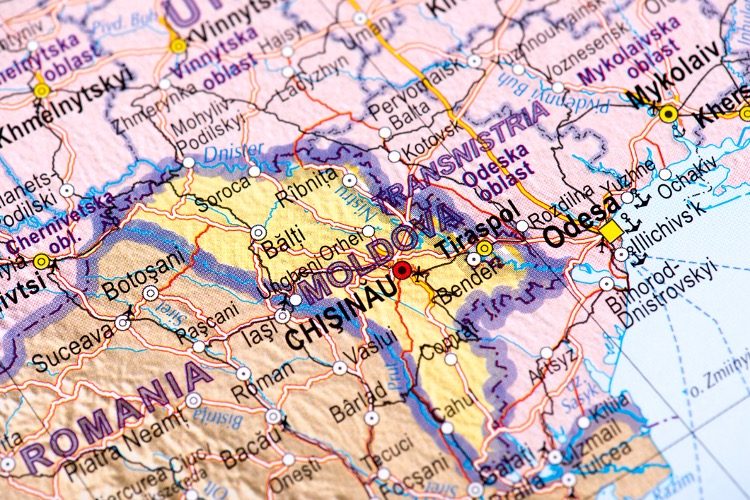
Transnistria, an unrecognized republic that split from Moldova in the early 1990s, asked Russia on February 28 for help amid mounting pressure from Chișinău, which it slams as an “economic blockade.”
The call for help was made at a congress of Transnistrian legislators at all levels, which adopted a declaration on the matter. The lawmakers asked Moscow to adopt “measures to protect Transnistria amid mounting pressure from Moldova,” underscoring that nearly half of the 450,000 people living in the unrecognized country are Russian citizens.
“We’ve asked to intensify political and diplomatic measures, since the Russian Federation is one of the international mediators in the settlement process,” the self-declared republic’s foreign minister, Vitaly Ignatyev, explained while speaking to the broadcaster Rossiya 24.
The congress also raised the issue of the “economic blockade” with the UN Secretary-General, OSCE, the EU Parliament, and other international bodies and organizations, urging them to put pressure on Chișinău.
Moscow responded to the call for help, promising to address it shortly. “Protecting the interests of Transnistria residents, our compatriots, is one of our priorities. All requests are always carefully considered,” Russia’s Foreign Ministry said in a statement.
The Russian parliament will evaluate the Transnistrian plea as soon as the document actually reaches Moscow, Konstantin Zatulin, a senior lawmaker with the lower chamber, the State Duma, told RIA Novosti.
Moldova has already blasted the move, with the country’s Vice PM on Reintegration Oleg Serebyan dismissing Tiraspol’s call as “propaganda” and denying putting the breakaway territory under an “economic blockade.”
“The Deputy Prime Minister for Reintegration and the Bureau for Reintegration Policies of the Moldovan Government firmly dismiss propagandistic statements from Tiraspol. They emphasize that the Transnistrian region of the Republic of Moldova enjoys peace, security, and economic integration policies with the European Union,” Serebyan said in a statement.
Transnistria, a narrow strip of land between the eastern bank of the Dniester River and Ukraine, proclaimed independence from Moldova in the early 1990s, shortly after the fall of the Soviet Union.
Following Moldova’s failed attempt to reclaim the territory by force, a ceasefire was reached in 1992, with Russia maintaining a small peacekeeping force in the region. Over the years, Tiraspol has taken multiple steps to integrate with Moscow, with the republic’s population overwhelmingly backing the idea to join Russia in the mid-2000s.
Some analysts say Transnistria’s actions are reminiscent of what the two eastern Ukrainian regions of Donetsk and Luhansk did in 2014, which eventually led to Moscow recognizing them as independent republics in February of 2022 before launching its invasion. The primary difference is that while the Donbas region only appealed to Moscow, Transnistria has also requested help from the UN and the EU, perhaps to lend legitimacy to its claims.
Should Moscow move to assist Transnistria, this could open up a second front in the war in Ukraine, with Russia using the military garrisons and equipment already in the territory to launch attacks into the Odessa region of Ukraine.
This would make sense for Moscow strategically, as the Ukrainian military has launched many attacks on Crimea and the Russian Black Sea fleet from Odessa and neighboring Mykolaiv regions along the northern coast of the Black Sea. Helping Transnistria would provide Russia an excuse to take both Black Sea provinces, connecting its newly acquired territory with the breakaway region.
Moldova, conveniently, is not a member of NATO, so a much-feared Russia-NATO conflict is not likely to occur should Moscow make such a move.
Nevertheless, the German government has prepared a model for a potential Russian attack on NATO, Bild claimed on February 28. Per the tabloid, authorities in Berlin have described four distinct phases, culminating in potential nuclear strikes on NATO member states.
Besides, Bild reported to have obtained a 13-page risk analysis for civil defense supposedly prepared for the German parliament.
Germany would be among the top targets in the event of a Russian attack on NATO, according to the newspaper, with officials allegedly deeming such a risk “plausible.”
The first phase of a strike by Moscow would purportedly involve a disinformation campaign aimed at dividing the German population and destabilizing society. Also, Russia would supposedly conduct cyberattacks on critical infrastructure.
According to Bild, the Kremlin would then deploy troops to the border with NATO — a move carried out also by the U.S.-led military bloc. Cyberattacks and sabotage on German soil would take place in addition to this, with satellites also targeted, it claimed.
Phase three would entail “selective attacks with conventional weapons and non-conventional means, also on targets on the territory of Germany,” the media outlet alleged.
The peak of the imagined Russian invasion would see “hostilities on land, at sea as well as in the air on German territory,” with the conflict taking on a global scale, it was predicted.
The article further alleged that the German government has not ruled out the use of chemical and nuclear weapons by Russia.
The claims follow a Bild report last month that described a month-by-month outline of a possible “path to conflict” between NATO and Russia, alleging that Moscow could launch an “open attack” in 2025.
Regarding the report at the time, Kremlin spokesperson Dmitry Peskov stated that Bild “doesn’t shy away from publishing various hoaxes.”
In recent months, German Defense Minister Boris Pistorius has on several occasions predicted that Russia could attack NATO in five to eight years’ time.
In January, Swedish Foreign Minister Tobias Billstrom called on his compatriots to prepare for a potential military confrontation between NATO and Russia. Elsewhere, U.K. Defense Secretary Grant Shapps has also predicted a global conflict between the West and Russia, China, Iran, and North Korea within five years.
Russian President Vladimir Putin insisted in December that Moscow “has no interest … geopolitically, economically or militarily … in waging war against NATO.”


